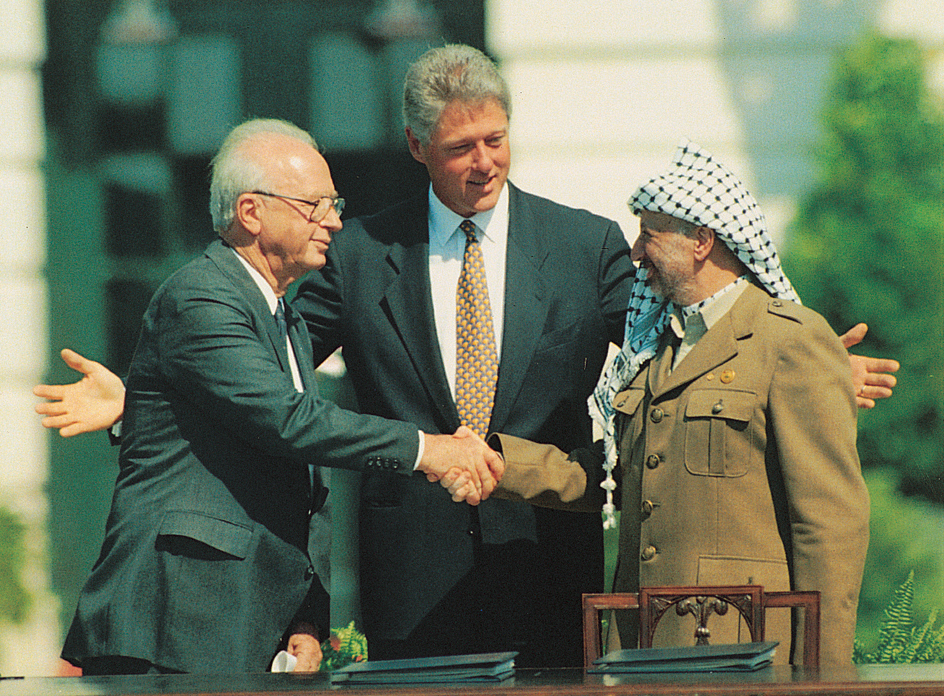Palestine Liberation Organization (PLO) is a political body that represents the Palestinian people. The Palestinians are an Arab group native to the historic region of Palestine in southwest Asia. This region today consists of Israel, the West Bank, and the Gaza Strip. The PLO seeks to establish an independent state for Palestinians in Palestine.
There are about 13 1/2 million Palestinians. About 60 percent of them live outside Palestine. A large number of Palestinians—including many living in the West Bank and Gaza Strip—are refugees of Arab-Israeli wars or the descendants of refugees.
The PLO is an umbrella organization that includes guerrilla groups and associations of doctors, laborers, lawyers, women, students, and teachers. A number of Palestinians are independent members of the PLO. Guerrilla groups, primarily Fatah, dominate the PLO.
Organization.
The main branches of the PLO are the Palestine National Council (PNC), the Executive Committee, and the Central Council. The Palestine National Council serves as an assembly, or parliament, of the Palestinian people. The size of the PNC has varied over the years, but it generally has had a few hundred members. Some are elected, and others are appointed. The PNC is supposed to meet annually, but in some years, it does not meet. The PNC is considered to be the supreme authority of the PLO. It creates policies, plans, and programs for the organization.
The Executive Committee is the PLO’s highest executive body and makes most day-to-day decisions. The PNC elects the chairman and the other members of the Executive Committee. The chairman is the PLO’s highest official and has historically exercised great power over the organization. The Central Council, which is also elected by the PNC, meets on occasion to advise the Executive Committee.
History.
Many Jews immigrated to Palestine during the 1900’s. As Jewish immigrants arrived, tensions developed between the Jews and the Palestinians, who feared that the Jews would eventually dominate or expel them. In 1948, the state of Israel was founded in the region as a homeland for Jews. War immediately broke out between Israel and Arab countries opposed to Israel’s creation. Israel originally covered slightly more than half of Palestine. But as a result of the war, Israel gained additional territory, and numerous Palestinians were driven from areas under Israeli control. During the 1950’s, some Palestinians began organizing resistance groups.
In 1964, at an Arab summit meeting in Cairo, Egypt, Arab leaders called for the establishment of an organization to represent the Palestinians. The leaders asked Ahmad al-Shuqayri, a Palestinian lawyer and diplomat, to nominate members for this organization. On May 28, 1964, al-Shuqayri’s 422 Palestinian nominees met in Jerusalem. These delegates founded the Palestine Liberation Organization. Al-Shuqayri became the first chairman of the PLO Executive Committee.
After a 1967 war with Israel, control of the PLO fell into the hands of Palestinian guerrilla groups. The largest of these groups was Fatah, led by Yasir Arafat. In 1969, the Palestine National Council elected Arafat chairman of the PLO Executive Committee. Fatah and other guerrilla groups conducted numerous attacks and raids on Israeli targets. Israel, in turn, launched attacks against PLO and guerrilla sites. Arafat was head of the PLO until 2004.

In 1993, the PLO and Israel conducted secret discussions in Oslo, Norway. The two sides reached an agreement that was signed on Sept. 13, 1993, in Washington, D.C. The agreement, the first of the so-called Oslo accords, called for the creation of a Palestinian Authority (PA) to manage the affairs of the Palestinians in the West Bank and Gaza Strip.
The PLO continues to function as the representative of the Palestinian people. It is a member of the Arab League, an association of Arab states; has observer status at the United Nations; and maintains diplomatic relations with many countries. But with the creation of the PA, the PLO has lost some influence.
For more information on the PLO and Palestinian history, see Palestine .
